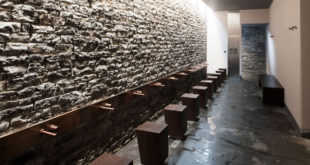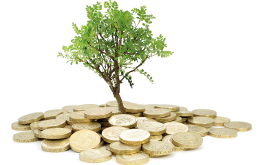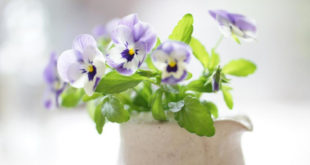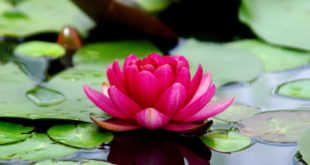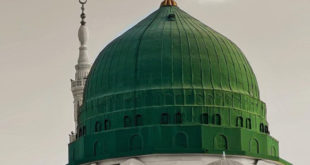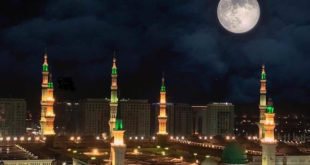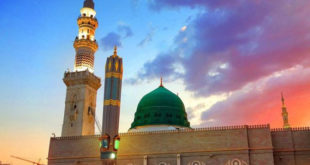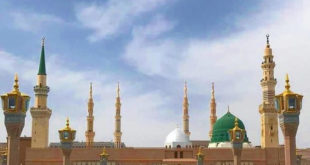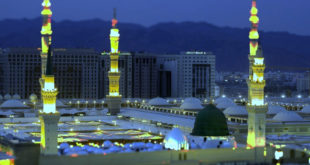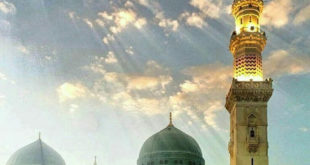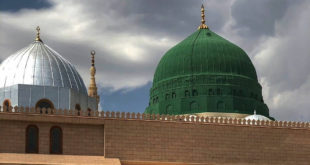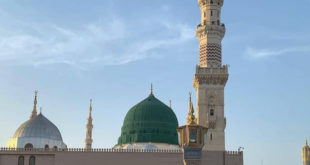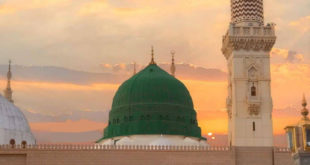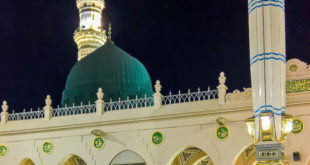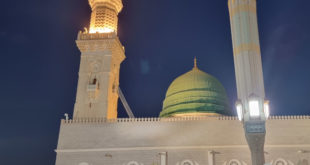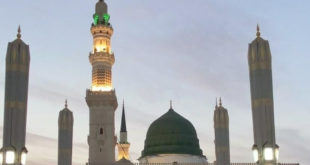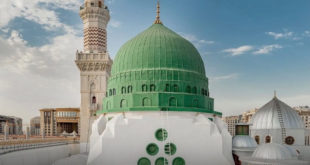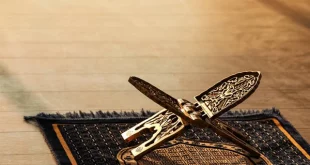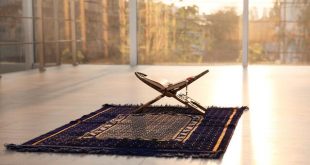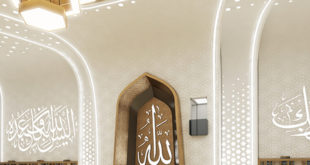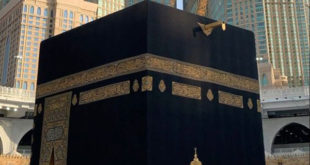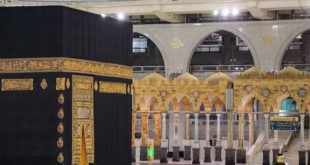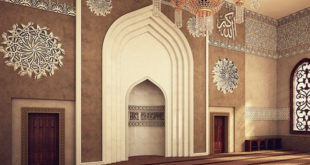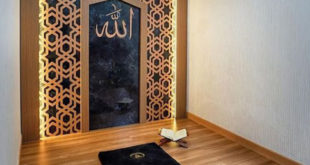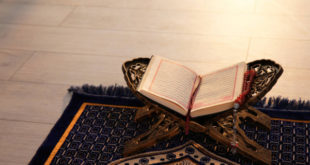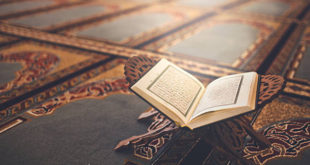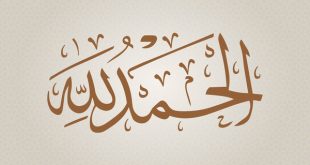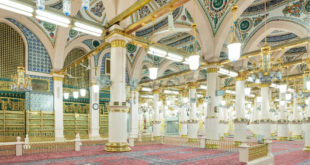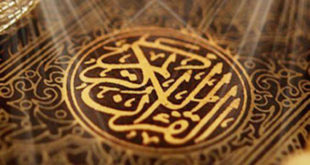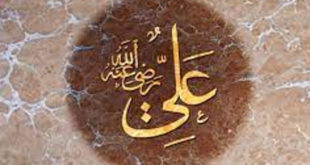1. Q: What are the faraaidh of wudhu? A: The faraaidh of wudhu are as follows: Washing the entire face once. Washing the arms including the elbows once. Making masah of at least one quarter of the head. Washing both the feet including the ankles once.[1] 2. Q: Which parts of …
Read More »Recent Posts
February, 2020
-
10 February
Assisting the Ummah at the Time of Need
Hazrat Moulana Ashraf Ali Thanwi (rahmatullahi ‘alaih) once mentioned: The Deen of Islam places great emphasis on assisting those in need and those undergoing difficulties. However, it is unfortunate that in today’s times, many people are totally unconcerned about assisting those in difficulty. Some people are so miserly and self-centred …
Read More » -
6 February
Woman in haidh eating in public during Ramadhaan
Q: Some scholars say that it is permissible for a woman to eat and drink if she gets her menses during fasting but some scholars say that if a woman gets her menses while fasting then she should not eat and drink until the fast opens. Please clarify. A: It …
Read More » -
6 February
Sunnats and Aadaab of Relieving Oneself – Part 2
Cover your head and feet before entering the toilet.[1] عن حبيب بن صالح رحمه الله قال كان رسول الله صلى الله عليه وسلم إذا دخل الخلاء لبس حذاءه وغطى رأسه (السنن الكبرى للبيهقي، الرقم: 465)[2] Hazrat Habeeb bin Saalih (rahimahullah) reports that Hazrat Rasulullah (sallallahu ‘alaihi wasallam) would wear his …
Read More » -
6 February
Sunnats and Aadaab of Wudhu – Part 6
1. If any part of a limb which is fardh to wash in wudhu is left dry, the wudhu will be incomplete.[1] عن عمر بن الخطاب رضي الله عنه أن رجلا توضأ فترك موضع ظفر على قدمه فأبصره النبي صلى الله عليه وسلم فقال ارجع فأحسن وضوءك (صحيح مسلم، الرقم: …
Read More »
-
Tafseer of Surah Naazi’aat
وَ النّٰزِعٰتِ غَرۡقًا ۙ﴿۱﴾ وَّ النّٰشِطٰتِ نَشۡطًا ۙ﴿۲﴾ وَّ السّٰبِحٰتِ سَبۡحًا ۙ﴿۳﴾ فَالسّٰبِقٰتِ سَبۡقًا ۙ﴿۴﴾ …
Read More » -
The Extreme Generosity of Hazrat Talhah (radhiyallahu ‘anhu)
-
Securing the Blessings of Ramadhaan, Umrah and Hajj – The Tolerance of Rasulullah (sallallahu ‘alaihi wasallam) – The Orchards of Love – Part Seventy Three
-
Receiving the title of Al-Fayyadh from Rasulullah (sallallahu ‘alaihi wasallam)
-
Hazrat Talhah (radhiyallahu ‘anhu) Fulfilling his Pledge
-
Receiving Seventy Rewards
Hazrat Abdullah bin Amr bin Aas (radhiyallahu ‘anhuma) reported, “Whoever sends salutations upon Nabi (sallallahu ‘alaihi wasallam) once, Allah Ta‘ala and His angels will send seventy mercies and blessings upon him in return of his one Durood. Hence, whoever wishes to increase his Durood should increase it, and whoever wishes to decrease his Durood should decrease it (i.e. if he wants to earn great rewards, then he should increase his Durood).”
Read More » -
Increase in Sustenance
-
The Reward of Fasting on the Day of Arafah
-
The Angel that Stands at the Blessed Grave of Hazrat Rasulullah (sallallahu ‘alaihi wasallam) to Convey the Durood of the Ummah
-
Reciting Durood when Entering the Musjid
-
Sunnats and Aadaab of the Host – 2
2. Entertaining and hosting guests is a means of attaining great barakah (blessings) from Allah …
Read More » -
Sunnats and Aadaab of the Host – 1
-
Sunnats and Aadaab which every person needs to adhere to in his individual life – 9
-
Sunnats and Aadaab which every person needs to adhere to in his individual life – 8
-
Sunnats and Aadaab which every person needs to adhere to in his individual life – 7
-
Hazrat Ali (radhiyallahu ‘anhu) – Part Forty-One – Being Sent by Rasulullah (sallallahu ‘alaihi wasallam) to Level the Graves, Destroy Idols and Erase Pictures
Hazrat Ali (radhiyallahu ‘anhu) reports that on one occasion, Rasulullah (sallallahu ‘alaihi wasallam) attended a …
Read More » -
Rasulullah (sallallahu ‘alaihi wasallam) Approving of the Verdict of Hazrat Ali (radhiyallahu ‘anhu) – Part Forty
-
The True Ulamaa – Hazrat Ali (radhiyallahu ‘anhu) – Part Thirty Nine
-
Du‘aa for Assistance in Settling Debts – Hazrat Ali (radhiyallahu ‘anhu) – Part Thirty Eight
-
The Concern of Hazrat Ali (radhiyallahu ‘anhu) regarding Business being Conducted According to the Islamic Principles – Part Thirty Seven
 Ihyaaud Deen An Effort to Revive Deen in Totality
Ihyaaud Deen An Effort to Revive Deen in Totality
